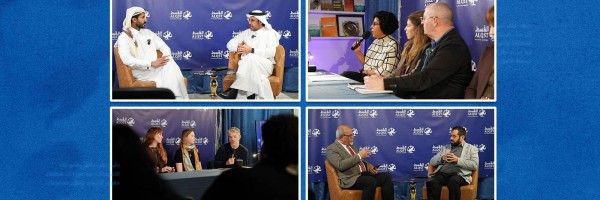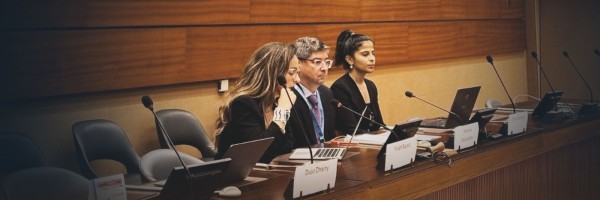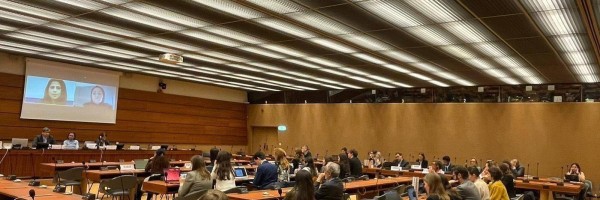ALQST’s 2021 Annual Conference took place on 10 December (International Human Rights Day) at the Frontline Club, titled: “Human Rights in Saudi Arabia and the Gulf: Repression Continues to Mount”. Speakers from Democracy for the Arab World Now (DAWN), The Freedom Initiative (FI), Amnesty International, Human Rights Watch (HRW), Mwatana for Human Rights, the Gulf Centre for Human Rights (GCHR), Access Now, FairSquare and MENA Rights Group discussed the human rights situation in Saudi Arabia and the Gulf, and strategies for securing accountability, over three sessions. You can watch it here.
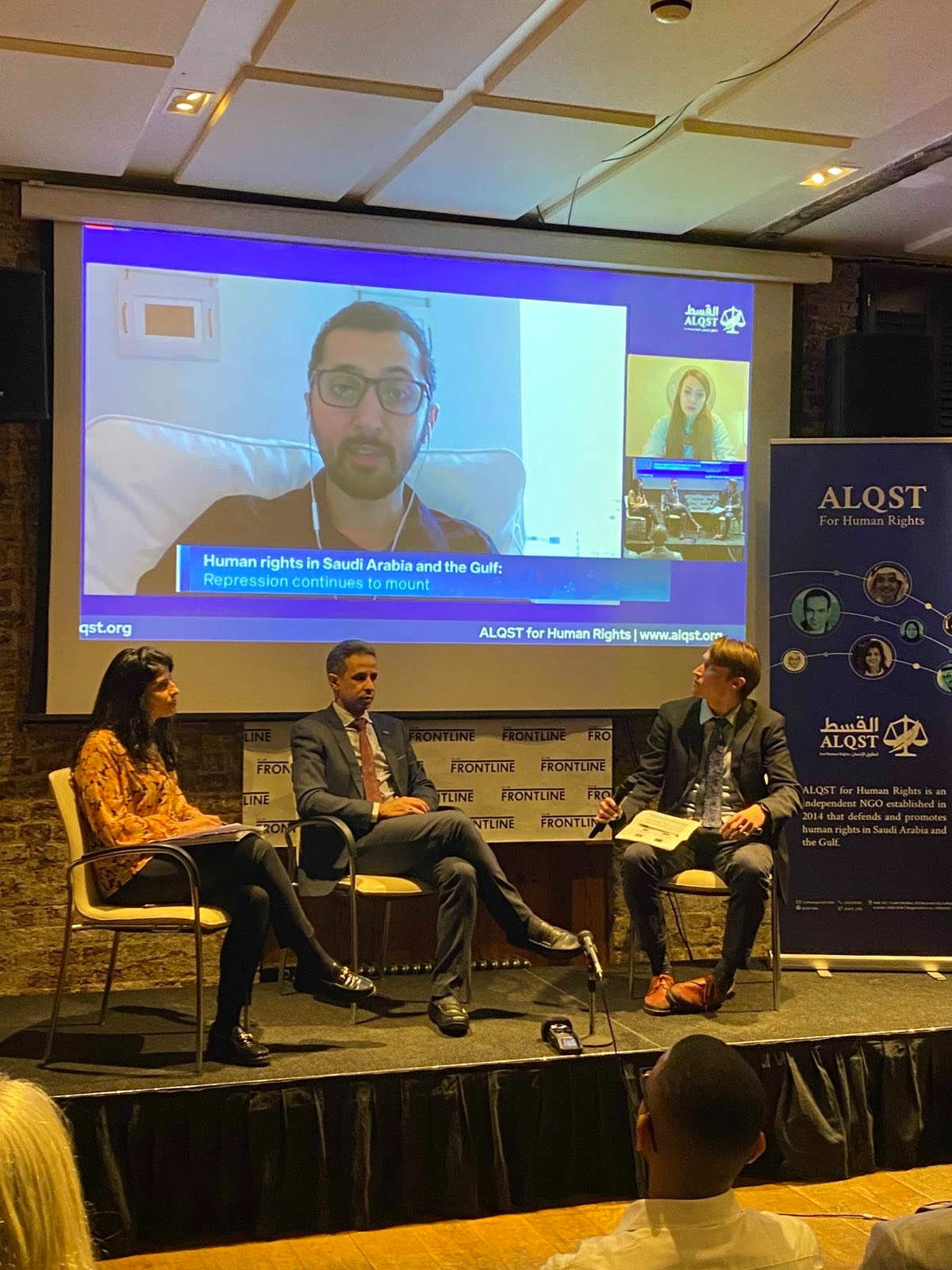
Session 1: Human rights in Saudi Arabia
Moderated by Josh Cooper, Deputy Director of ALQST, the first session concentrated on human rights in Saudi Arabia and the deteriorating situation since Mohammad bin Salman’s rise to power. Abdullah Alaoudh, Director of Research for the Gulf Region at Democracy for the Arab World Now (DAWN), a US-based NGO founded by Jamal Khashoggi, and co-founder and General Secretary of The National Assembly Party (NAAS), highlighted how human rights in Saudi Arabia have gone from bad to worse since Mohammad bin Salman (commonly referred as “MBS”) was appointment as Crown Prince. Not only are activists, feminists, scholars and others attacked and harrassed, Abdullah explained how MBS has gone beyond harassing individual activists, but now punishes and damages entire families, tribes and cities with collective measurements, such as travel bans against activists’ families. Abdullah also drew on the example of academic Saud al-Sarhan, reflecting that even though he worked for the government and had not voiced criticism against it, he was still arrested, showing that everybody, even those who do not have an activist background, are vulnerable and can be arrested.
Lina al-Hathloul, human rights activist, sister of Loujain al-Hathloul and member of the NAAS party, gave an account of women’s rights situation in Saudi Arabia by recapitulating her sister’s activism for women’s right to drive and to abolish the male guardianship system, and her arrest for that activism. While the international community was applauding MBS’ apparent reforms, women’s access to rights has remained dire, especially due to the prevailing male guardianship system, which makes women reliant upon their male relatives, husband or even son. She called on the international community not to believe the authorities when they speak of reforms but instead listen to Saudi activist and dissident voices. Lina finally stressed the need for including the Saudi people into decision making rather than leaving this to one man.
Thirdly, Dr. Bethany al-Haidari, the Saudi Desk Officer at The Freedom Initiative (FI) discussed propaganda tactics and damaging narratives the Saudi authorities use, which are often taken up by diplomats, politicians, and also sports and music industries, contributing to whitewashing the Saudi leadership’s image. Bethany pointed out that while the Saudi government portrays itself as a victim of Saudi society, claiming that society is responsible for the lack of progress, the presence of Saudi activists shows that society is indeed ready for change. But as an absolute monarchy, the authorities silence these voices and civil society does not get a say in policy changes. Bethany mentioned that the only reason why Saudi Arabia is not treated like other authoritarian states is because of money and strategic reasons, which make international powers turn a blind eye towards violations on the ground .
In the final contribution to the first session, Yahya Assiri, Saudi human rights activist, founder and trustee of ALQST and the former Secretary-General of the National Assembly Party (NAAS) pointed out that while the human rights situation in the country is deteriorating, so is the international reputation of Mohammed bin Salman, especially after Jamal Khashoggi’s murder. However, French President Emmanuel Macron’s recent visit to Saudi Arabia shows a renewed normalisation of international relations with Saudi’s leadership. As Yahya explained, the international community forgets that violations are taking place, which makes it difficult to create pressure. He further agreed with Bethany, criticising the stance that Saudi society is not ready for reform and pointed to women's right to drive, which was granted after immense pressure from Saudi activists and not from an inherent wish from the authorities themselves to reform. Yahya ended by calling on activists and the international community to keep up pressure up on the Saudi authorities, which can help to bring about changes.
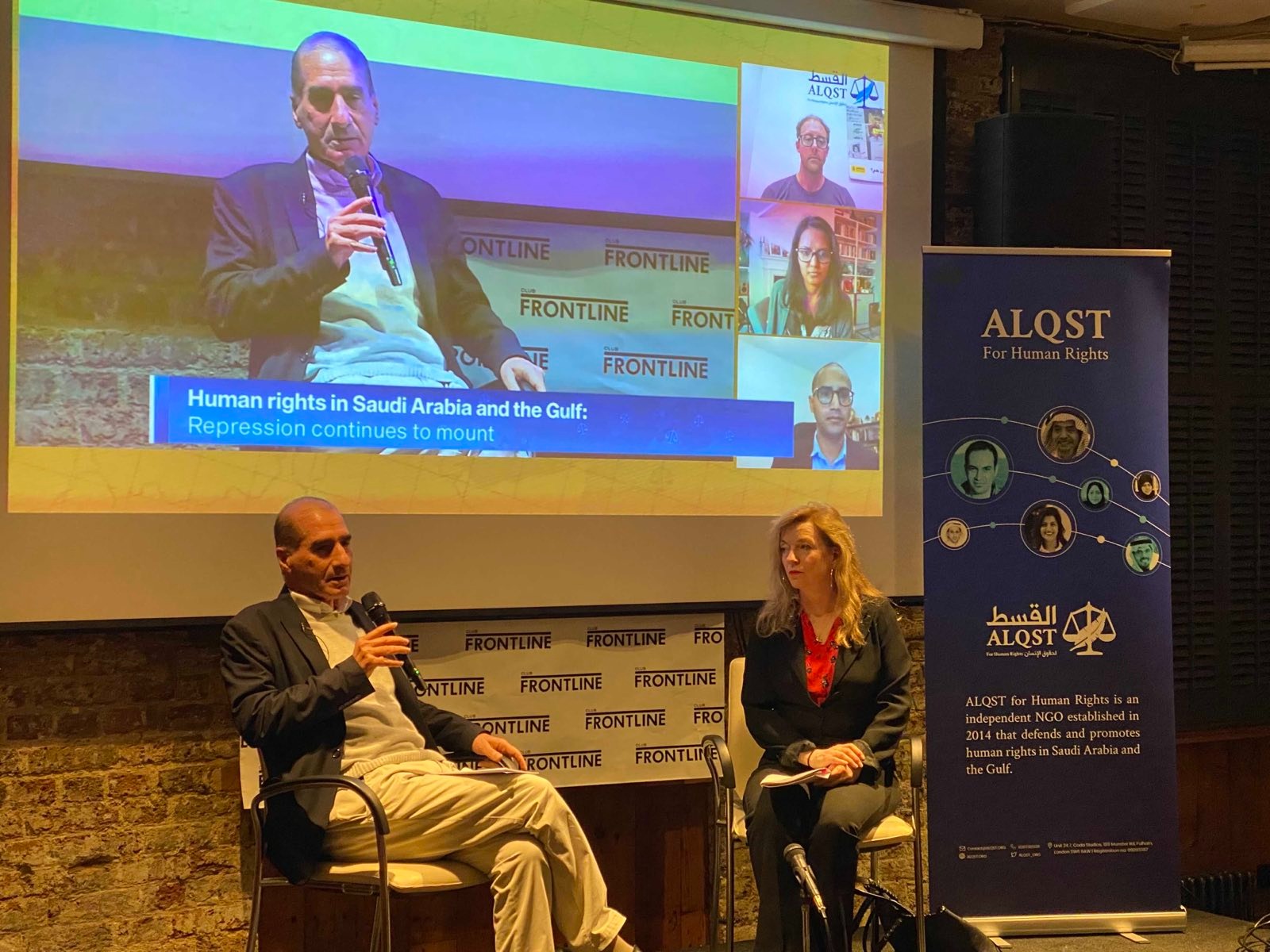
Session 2: Human rights in the Gulf
The second session, moderated by Melanie Gingell, specialist lawyer in equality, human rights and international law and advisor to the GCHR, discussed the human rights situation in the Gulf countries. Khalid Ibrahim, Executive Director and co-founder of the Gulf Centre for Human Rights (GCHR), started the panel with an overview over the human rights situation in the Arabian Peninsula. He stressed the fact that infringements of human rights are widespread across the region and criticised the international community for not doing enough to fight against these violations. Civil society remains oppressed, there is systematic torture in prisons and an overall lack of accountability.
Rothna Begum, senior women’s rights researcher at Human Rights Watch, painted a concerning picture of women’s rights infringements in Qatar. Inspired by Saudi women’s rights activists, women in Qatar have been increasingly voicing discontent with their situation. They face severe restrictions, most notably through the male guardianship system, which makes them dependent on their male relatives’ consent for studying, travelling, working and access to healthcare. Moreover, the Qatari system of male guardianship is even more restrictive than in other countries in the region in terms of custody rights for the mother.
Osamah Alfakih, Advocacy Director at the Yemeni human rights NGO Mwatana for Human Rights, spoke on the situation in Yemen and described it as the “world’s worst humanitarian civilian crisis”. He stated that all parties in the conflict have committed human rights violations, leading to the death of thousands of civilians through war measures such as landmines, enforced disappearance and starvation as a method of war making. However, the international community has so far failed at ensuring accountability for the crimes against humanity committed in the conflict, as highlighted by the termination of the UN Human Rights Council Yemen mandate.
Devin Kenney, researcher for Bahrain, Kuwait, Oman and the UAE at Amnesty International, finalised the round by providing a detailed overview over the four countries. He described Bahrain as being frozen in a state of repression with only superficial reforms and Kuwait as pursuing traditional patterns of balancing acts of repression. Even though Omanis do not speak a lot about the human rights situation in their country, Devin stressed that this should rather be a sign of concern and described the situation as silence out of fear. Finally, as to the UAE, he pointed out that there are very few restraints as to what the Emirati authorities can and will do.
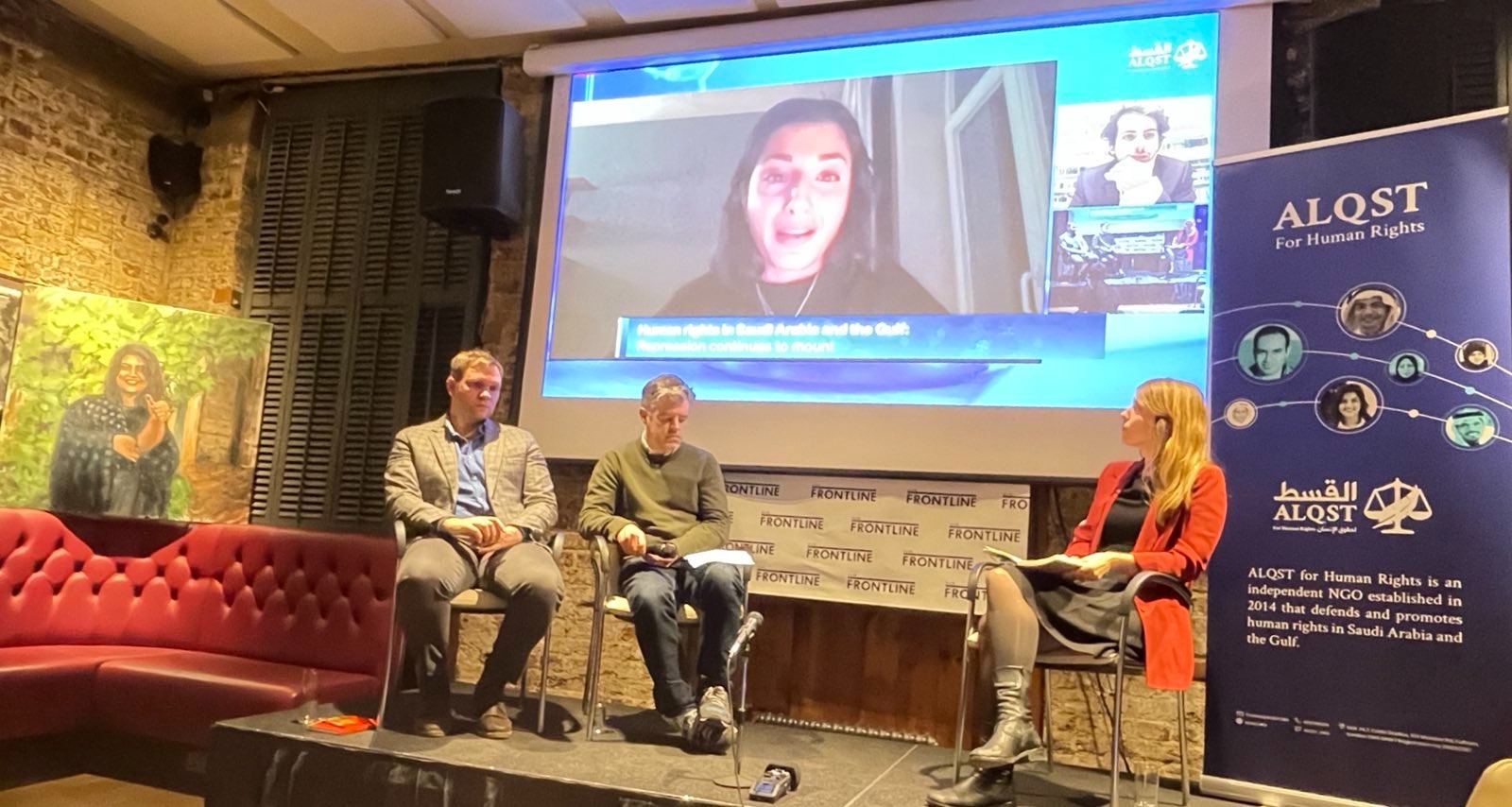
Session 3: Strategies for security accountability
The final session, moderated by Julia Legner, head of advocacy at ALQST, focussed on strategies on how governments can be held accountable. Matthew Hedges, British academic in the field of International Relations focussing on Security Studies and Authoritarianism, with a regional focus on the Arabian Peninsula, was falsely imprisoned for over six months in 2018 during a research trip to the United Arab Emirates. He talked about his experience in seeking accountability through filing civil cases and universal law cases against the authorities involved with his imprisonment, among others the newly elected president of Interpol Ahmed Naser Al-Raisi. Matthew concluded that even though it is daunting and dangerous for victims of human rights violations to continue to hold authorities accountable, it is the only way to take steps towards accountability.
Marwa Fatafta, MENA policy manager at Access Now and policy analyst at Al-Shabaka and specialist on digital rights and surveillance in the MENA region, discussed strategies of accountability regarding tech companies that sell spyware technology to authoritarian states. Opaque spyware companies have enabled such states to expand their jurisdiction beyond their borders through hacking devices of activists, lawyers and others. In order to provide accountability and transparency, Marwa stressed the need for litigation, advocacy and campaigning, as well as the importance of sanctions on those who profit from these companies.
James Lynch, founding director of FairSquare and visiting fellow at the European Council on Foreign Relations (ECFR), spoke about how there is a discrepancy of European governments who tend to highlight the importance of human rights on a global level, while maintaining relations with human rights abusing countries on a regional level. This leaves European countries passive in the pursuit of human rights. In order to make use of these countries’ leverage potential, it is crucial to show governments that a neglect of human rights on a global scale might pose a risk for their own country.
In the conference’s final contribution, Ramsi Kais, Legal Fellow at MENA Rights Group, spoke about challenges, but also new avenues for security accountability. As it is not possible to achieve accountability on the domestic level in the countries in the Arabian Peninsula, Ramsi suggested that strategies on an international level should be pursued. He specifically mentioned sanction mechanisms, judicial proceedings based on universal jurisdiction, and documentation of human rights abuses and the recognition of those through international institutions such as UN bodies.
ALQST would like to thank the panellists and those who attended in person and online for their participation and continued support.
